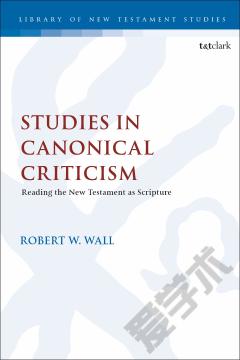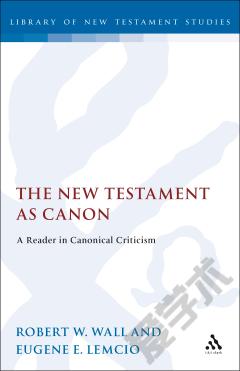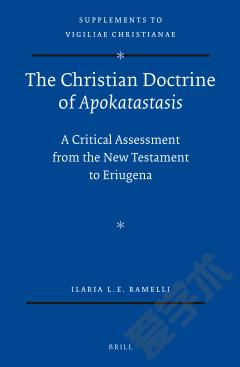Academic Constraints in Rhetorical Criticism of the New Testament —— An Introduction to a Rhetoric of Power
----- 新约修辞批评的学术制约
Academic Constraints in Rhetorical Criticism of the New Testament: An Introduction to a Rhetoric of Power, by J. David Hester Amador. JSNTSup 174. Sheffield: Sheffield Academic Press, 1999. Pp. 354. $85.00 (cloth). This book, representing an intervention in NT rhetorical criticism, features a trenchant critique of the subdiscipline itself and the elusive promise of new interpretive practices. Close scrutiny of the institutional contexts and conventions of biblical criticism characterizes Amador's vision. In ch. 1 Amador develops two primary arguments and offers his own methodological perspective. First, rhetorical criticism as currently practiced is "rhetoric restrained." With too much emphasis on style and arrangement, scholars miss out on the persuasive dimension of biblical discourse. And with the assumption that texts provide a window to the past and with a commitment to the text's "original meaning," scholars exclude the rhetorical practices of interpretation, appropriation, and institutionalization. Second, while style, arrangement, and historical context may be legitimate interests (Amador is skeptical about reconstructing history), even the most daring NT rhetorical critics fail to challenge the institutional frameworks and constraints of biblical interpretation. Amador promises an alternative perspective-a rhetoric of power that recognizes the materiality of text and interpretation, even a rhetoric of rhetorical criticism itself. In ch. 2 Amador argues that while rhetorical criticism in the broader academy features a variety of practices, inside biblical criticism a few characteristics dominate. The discipline is antiquarian (relying on ancient sources such as the rhetorical handbooks and progymnasmata), synthesist (ignoring the diversity among ancient rhetorical practices and tending toward taxonomic analysis), causalist (assuming that situations produce rhetoric and thus may be reconstructed through it), and historicist (looking only to original meaning as valid interpretation). In contrast to the "rhetoric restrained" that limits contemporary rhetorical criticism, Amador sketches three characteristics of his rhetoric of power in ch. 3. It is symbiotic, recognizing the complexity of rhetorical action, including the histories and material conditions of reading, the media of communication, and other dimensions. It is symphonic, recognizing a multiplicity of critical approaches and perspectives that may result in cacophony (p. 55). And it is museful, emphasizing the ongoing inventive power of words as opposed to static meaning grounded in "an ontology of truth" (p. 55). Amador's rhetoric of power involves "the explicit commitment to search out and question the 'powerful' within the presumptions, values, judgments, `truths,' 'facts' and beliefs at work in every rhetorical a(rtifa)ct; the systems perpetuating and legitimating the `powerful'; and, finally, the 'powerful' as given form in the a(rtifa)ct itself' (pp. 58-59). One wonders whether and how this perspective moves beyond what has come to be known as cultural studies. Three sources nourish Amador's model. First, the new rhetoric of Chaim Perelman and Luce Olbrechts-Tyteca recognizes that all argumentation depends on its audience. Rhetoric, then, is not just a way of analyzing ancient texts; it provides a potential vehicle for public deliberation concerning the Bible's significance (p. 83). Second, the work of Wilhelm Wuellner moves beyond style and arrangement to larger practices of persuasion and the recognition of varieties of argumentative situations in which the Bible functions. Wuellner is a rare rhetorical critic dedicated to bringing the Bible into conversation with modern readers. And third, literary theorist Stephen Mailloux foregrounds the institutional argumentative context of scholarship, including its rhetorical strategies and assumptions. Mailloux rejects any grand theory of reading, instead considering how rhetorical practices address specific institutional concerns and values in specific historical contexts. â¦
{{comment.content}}








 京公网安备 11010802027623号
京公网安备 11010802027623号